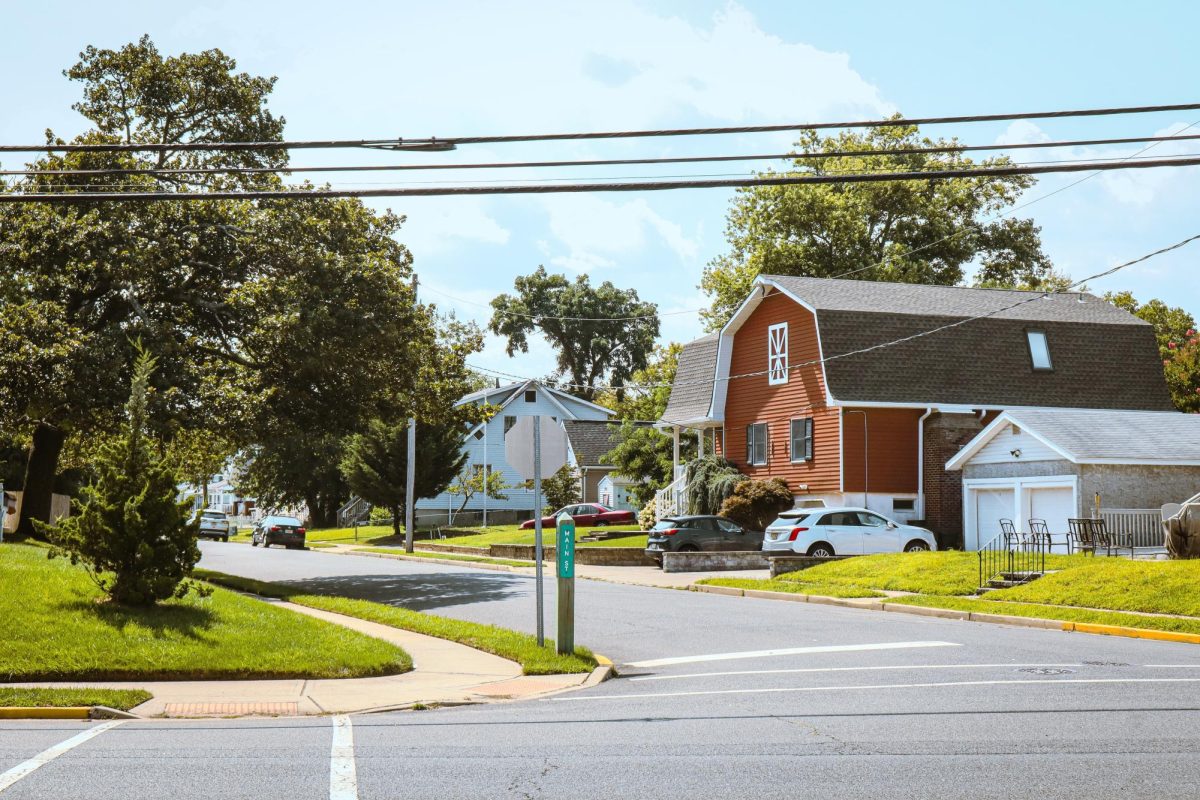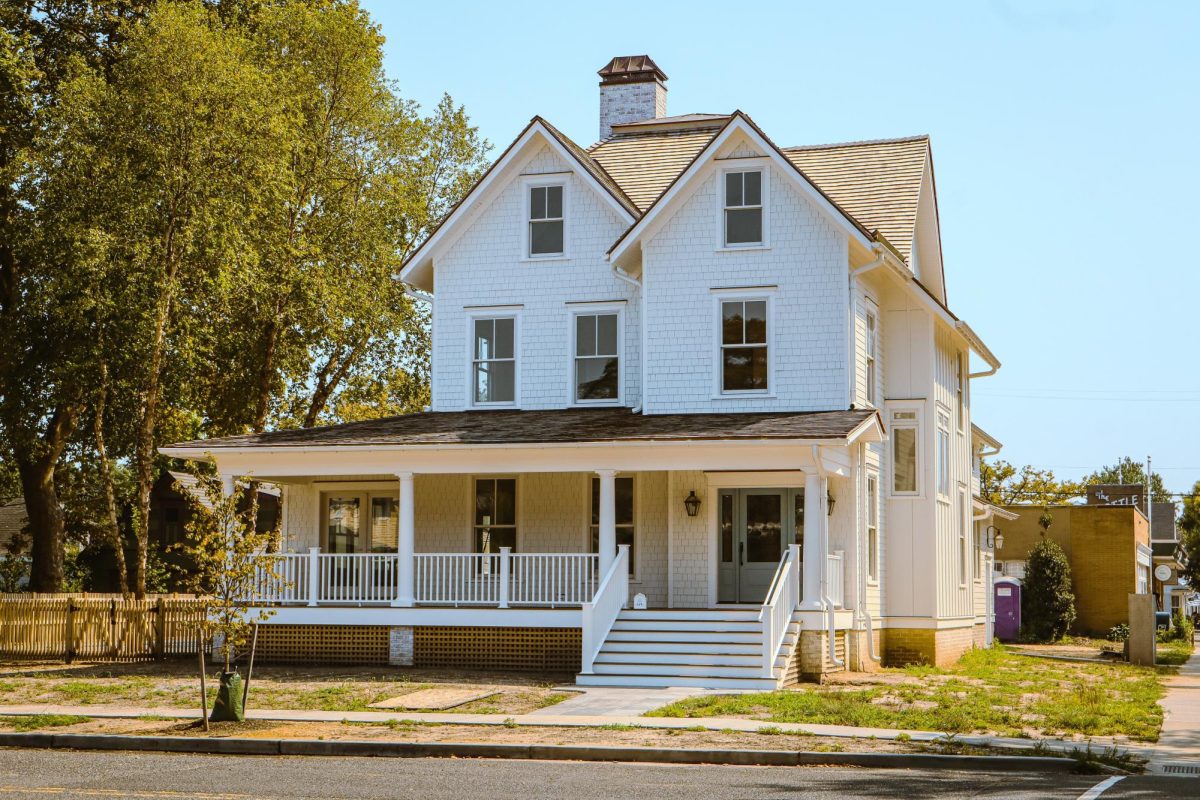While seemingly innocuous, Southern hospitality acts as a surveillance tool which enforces rigid gender norms. As a Fordham student raised in the South, I’ve had to reevaluate these expectations since moving to New York.
I knew I would feel culture shock. Experiencing my first moments in New York City after arriving from a small town in Central Texas was bound to generate a sense of bewilderment. This shock, however, was not due to the abundance of healthy food options or the absence of Confederate flags on neighbors’ doors. By the end of my first week here, I called my mom, frantically repeating four words: “Nobody looks at me.”
Interactions in my small town, especially with strangers, follow an unspoken set of rules. These moments unfailingly include a smile, a mutual nod and an ad-lib along the lines of, “How ya doin’?” Whether you’re grocery shopping, conversing with a waitress or walking your dog through your neighborhood, there’s a sense of community formed through these small gestures, all rooted in the cultural norm known as “Southern hospitality.”
Yet after a month in New York City, I’ve recognized an undercurrent that also flows through the veins of the South, inseparable from the charm of Southern hospitality: surveillance.
Southern hospitality is a defining characteristic of the South, marked by ever-present door-holding, shared meals with neighbors and endearing, unhurried conversations. I grew to love the welcoming phenomenon, except when I’d awkwardly stand beside my dad as he spent 30 minutes talking to a longtime friend he found in a Walmart. Yet after a month in New York City, I’ve recognized an undercurrent that also flows through the veins of the South, inseparable from the charm of Southern hospitality: surveillance.
The constant greetings reveal how everyone is acutely aware of one another. Beyond elderly women taking every opportunity to call someone “darling” with open arms, there exists an understanding that one has a role to play, and that role cannot impede on the long-established way of upholding traditional values or else they’ll be faced with disdain and mockery. In a sense, everyone is always watching.
Through this consistent monitoring, I’ve come to believe that the seemingly innocuous rituals of Southern hospitality conceal social pressures that reinforce conformity, uphold gender norms and create an environment where men, in particular, avoid any expression that could be read as feminine.
These repressive actions that diminished my distinctiveness weren’t just reserved for me. They were present in every boy around me.
In the midst of this surveillance, every choice someone makes seems to be open to public scrutiny. In my sophomore year, I ditched my olive tones and silver rings for gray hoodies and sweatpants to avoid any more attention than I already had. I’d find myself turning down Taylor Swift in a drive-thru or curating specific playlists with enough rap artists so acquaintances wouldn’t judge me in the car for having “basic music taste.”
This feeling of surveillance also infiltrated my social life. Despite having a majority of female friends in high school, I actively sought out male friendships, as I felt it validated an appearance of masculinity within me. In my first year of high school, my close friends described me as animated and constantly talking with my hands, while my soccer teammates claimed I was “sarcastic and dry.” There was an obvious disconnect between the expressive, authentic version of myself in comparison to a more reserved one.
These repressive actions that diminished my distinctiveness weren’t just reserved for me. They were present in every boy around me.
I can recall countless times when guys would subconsciously cross their legs in a “ladylike” manner, then quickly uncross once they realized they might appear too feminine. The restricted amount of expression allowed for only a slight amount of individuality.
If an aesthetic was socially allowed, it was safe. No guy was looked down upon for wearing baggy jorts, oversized T-shirts and drinking a matcha from Starbucks (but only that, as a man cannot be publicly seen with a Starbucks strawberry açaí). A cropped shirt was cool until it began to look like a baby-tee.
As soon as someone veered too far into femininity, the hounds were released. This reprimanding wasn’t direct, but instead circulated through whispers and sideways glances, creating a small-town panopticon of sorts.
Every action comes with a loophole — an attempt to show care while simultaneously withholding it.
Owning a Stanley Cup, wearing makeup or painting your nails instantly marked you as “the gay one.” But this was never really about sexuality. It was about gender expression and about signaling to the community that you knew your role and wouldn’t stray from it.
There is an existing notion that sexuality immediately coincides with gender expression, but a boy who appears stereotypically feminine is more likely to face more negative reactions than a girl who adopts the traits of a “tomboy.” Women who embrace masculinity are not looked down upon because they’re seen as aspiring to the dominant male standard. A feminine man’s behavior is seen as deviating from his prescribed gender norm, as masculinity is associated with strength and power.
Boys are trained not to love anything too openly. You can listen to female artists, but only the ones deemed acceptable: SZA’s heartbreak is cool; Taylor Swift’s is embarrassing. You can play the guitar and sing by yourself, but joining choir is a no-go. Caring about hygiene and appearance is allowed under the guise of “looksmaxxing,” a practice of maximizing one’s physical appearance, amplified by male incel spaces on social media.

Every action comes with a loophole — an attempt to show care while simultaneously withholding it.
And whenever someone dares to break the script, it’s always defended by the phrase, “It’s not in a gay way.” Masculinity is a trait that is constantly hanging by a thread, needing to be proven. Every choice outside of that boundary requires an explanation.
In the South, hospitality and scrutiny coexist. The friendliness that fosters community also builds boundaries, subtly structuring how people, especially men, dress, talk and love.
Over time, I realized that Southern hospitality can feel warm, but New York City anonymity feels freeing.
After I got off the phone with my mom, exclaiming, “Nobody looks at me,” I began to envelop myself in the new culture. I discarded my instinct to meet every passerby’s eyes, to nod, to smile. This was very difficult at first, as I didn’t want to come off as inhospitable, but eventually, I felt that I was finally freed from the confines of surveillance.
Suddenly, my mornings weren’t filled with anxiety because my outfit was at risk of being judged. I began to not overthink if my voice sounded “manly” enough. A weight of ideals I both consciously and unconsciously pursued was lifted.
The more I stopped looking at people as they passed, the more I stopped caring about what they were doing, and realized they didn’t care what I was doing either. Over time, I realized that Southern hospitality can feel warm, but New York City anonymity feels freeing.
I don’t believe that Southern hospitality inherently carries malicious intent. The warm culture creates an unparalleled tight-knit connection, but there is still a slight performance that the niceness relies on. New York City, however, accepts indifference to one another, not emphasizing the need to analyze a stranger’s actions.
That doesn’t mean I think New Yorkers are inherently cold. There’s simply a different kind of kindness here that doesn’t require a front of “niceness.” There’s a kindness rooted in liberation. This liberation exists in pure authenticity. There isn’t a need to hide away from myself in such a diverse city that prides itself on acceptance of all identities. Here, I can wear a Taylor Swift hoodie and cross my legs without a second thought. The only person looking at me is myself.

